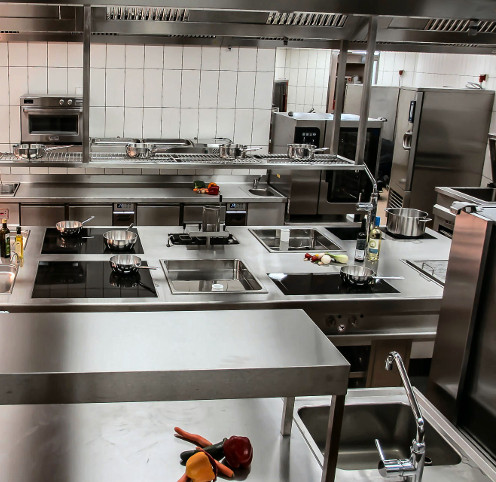Chef Deivydas Praspaliauskas: “When creating a restaurant, don’t be afraid to make mistakes. Take the risks and keep trying.”
Many people are enticed by the catering business and the idea of owning a restaurant. However, it is a risky and competitive business where the desire to succeed alone is not enough. According to Deivydas Praspaliauskas, the founder of multiple restaurants who holds the title of the best Lithuanian chef, if you intend to create your own restaurant or cafe, you need to start with a strong idea and a business plan.
“Without a clear idea and a plan for how to implement that idea, it will never work out. In addition to planning everything, you need to calculate your available resources. Nonetheless, you shouldn’t be afraid to fail – if you don’t manage to do it right the first time, try again, and don’t be afraid to take risks. It’s very important to understand how the catering business works, so it’s better if you are an expert in one of the related fields: an experienced chef, bartender or even an accountant,” said D. Praspaliauskas.
According to the chef, another important element is creating a technological plan for the kitchen, so your particular ideas can merge with the reality. This idea is supported by the technologist and Head of Patogus Verslas – Gabrielė Ruginytė. According to her, meticulously planning the kitchen space with the help of a professional not only ensures that a new restaurant will run smoothly, but also helps the owner avoid many time-consuming and costly mistakes.
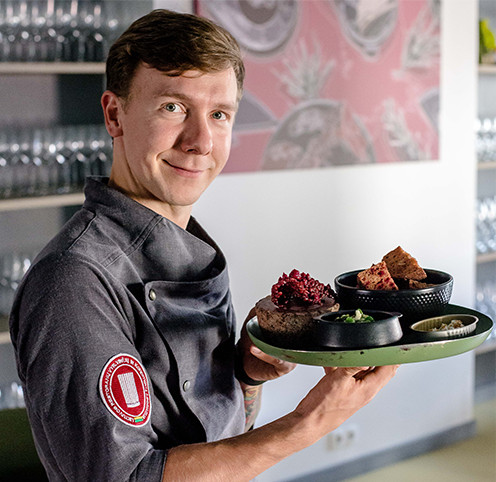
“A detailed technological plan for a commercial kitchen is prepared by considering the concept, the equipment, the premises and the legal requirements for the future restaurant. Non-intersecting models of the ergonomic flows are developed, in which the behavior of the employees is predicted. When preparing the plan, all the necessary operations and spaces should be envisioned: the acceptance of goods, storage under the appropriate conditions, product preparation, heat treatment, portioning, presentation to the customer, washing of the kitchen and eating utensils, recycling and disposal of waste, etc. Based on the plan prepared by a technologist, the construction and engineering stages can then be organised. These will include the formation of a water supply and sewage system, the required electricity supply, installation of a ventilation system that fits the requirements of the premises, installation of partitions, decoration of the restaurant, and finally the installation and connection of the equipment,” said G. Ruginytė. According to the specialist, it is preferable for the chef to be involved in the development of the technological plan. The chef can provide information about the menu and the specific raw materials, as well as individual cooking requirements. This really contributes to the preparation of a high-quality technological plan. In designing a kitchen, the best results are achieved when a designer and the chef cooperate in a synergistic manner during the development of the technological plan,” stated G. Ruginytė.
D. Praspaliauskas expressed full agreement with this idea, adding that an experienced and professional technologist can offer great new ideas that can make a kitchen work even more efficiently. “No matter how much experience you have working in a kitchen, and no matter how well you know where a certain piece of equipment should be placed, everything can fall apart without a technological plan. For example, certain items will only work correctly if the capacities of the electrical or plumbing systems are assessed. A technologist is usually well-versed in the latest market innovations and can offer state-of-the-art solutions that make the kitchen work efficiently, even for the most experienced chef,” said D. Praspaliauskas.
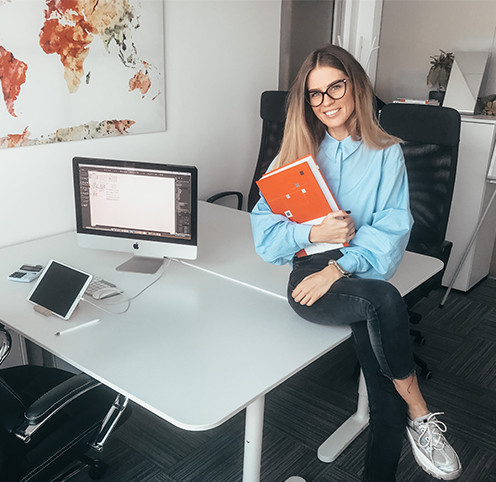
Choosing the right equipment
Operating a professional kitchen is unimaginable without the proper restaurant equipment, as this not only determines the efficiency of the work but also the quality of the dishes that are prepared. Audrius Trabutis is a representative of Audores, a company that has been selling restaurant equipment for over a decade. According to him, in order for an investment in equipment to pay off, it is necessary to think about the planned menu as well as the customer flow and work capacity. “It is only necessary to buy a large and expensive oven in cases where it will be used to its full capacity. We encounter some customers who are determined to buy the most expensive and powerful, multi-functional devices. But they don’t really need these devices if they are planning to open a small cafe with just a few tables. Clearly, this kind of investment will not pay off and some of the equipment remain unused or will only be used at half its capacity.
D. Praspaliauskas also emphasised that it’s very important to do one’s homework and understand the requirements before buying the equipment. “For those who are planning to purchase restaurant equipment, it is not just the brands that are important, but a deep understanding of the equipment you are buying and why it is needed. This determines what you how well the equipment you purchase will serve your requirements. It is also important to keep the technological plan at the forefront of your mind. Otherwise, you may not have a sufficient electric capacity to run your state-of-the-art oven, or will use only part of the features of your multi-functional oven due to your planned menu,” said the chef.
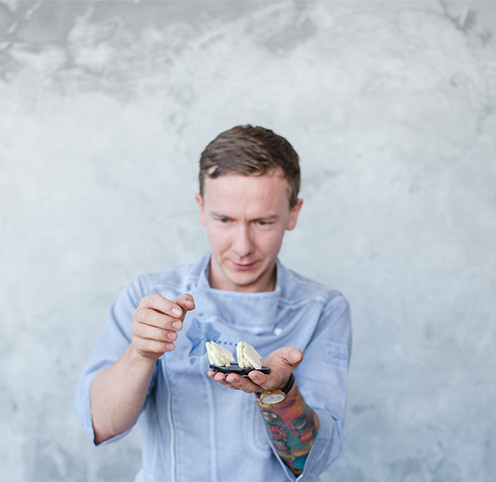
According to the chef, ultra-high-quality, premium-class equipment should only be chosen if the restaurant owner is planning to serve a lot of customers or make food for an extended period of time without stopping. In that case, a high-quality, powerful and expensive piece of equipment can ensure smooth uninterrupted work, thus saving time as well as energy resources.
How can you save money?
Establishing your own restaurant or cafe will never be cheap. If you lack the right understanding and knowledge, it is easy to lose thousands of euros. Yet, according to D. Praspaliauskas, it is still necessary to try to save money while opening a restaurant.
“Creating a restaurant can lead one to spend a lot of money, without a good purpose. One of the most important pieces of advice I would offer to those who want to save money is to gain an understanding of how the restaurant business works. Before starting a restaurant business, it is useful to talk to people who already work in the catering business and have plenty of experience. It can also be useful to test your ideas by presenting them to your friends and hearing their opinions,” said D. Praspaliauskas.
In addition to a market analysis and a clearly defined concept, according to technologist G. Ruginytė, specialists are also needed to help assess the existing premises of a catering company, as well as the design and the implementation possibilities that remain in-line with the financial and non-financial expectations.
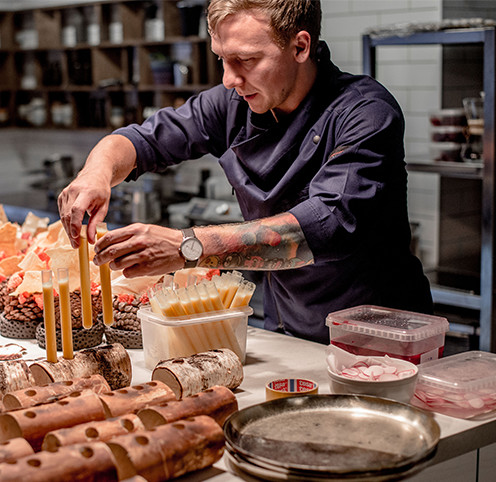
“If every process is done consistently and in a well-planned manner, it will save money, and completing one’s homework prevents unpleasant surprises. Therefore, the technological plan is the starting point for calculating the estimated costs, in addition to carrying out the construction and engineering processes and obtaining the necessary permits and licences,” explained G. Ruginytė.
A. Trabutis, the representative of Audores, revealed that money can also be saved by choosing and assessing the seller who is offering the equipment. "When buying restaurant equipment, ask the seller how much experience they have. Research their reputation to determine whether they are able to provide sufficient advice regarding the use of the equipment, as well as if they provide maintenance and repair services, or will offer a replacement item in case of a malfunction. In addition, it’s faster and easier to solve your equipment issues when it’s all purchased from a single seller. In that case, you always know who to contact and can solve the problem with just one phone call.
For home cooks
Today, the catering industry should not ignore those who prepare food at home. More and more people are serving a variety of home-made meals directly to consumers. However, even domestic businesses are investing in more and more professional equipment.
“As domestic cooks gain more experience, they come to realise that the equipment they have is no longer be enough – it cannot withstand a higher workload without malfunctioning, it is inconvenient to clean, etc. Furthermore, not every type of dish can be prepared with an ordinary kitchen device. Therefore, it is not surprising that people are increasingly buying equipment that was originally designed for professionals,” said Chef D. Praspaliauskas.
Audores is also noticing an increase in the number of their customers who intend to cook at home. “Our private clients are not only buying professional convection ovens and freezers. More and more often, they are investing in mixers, blenders, meat grinders, slicers, and so on. The range of supplies for this market is really large, so it is really only possible to find the optimal solution by consulting with a specialist. In this way, the cooking process at home will not only be smoother, but also more convenient and faster.”
